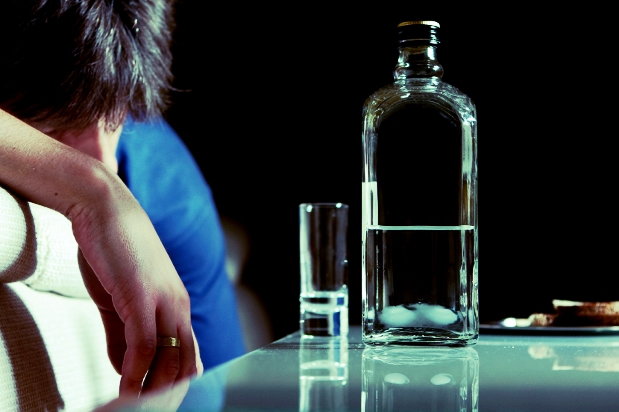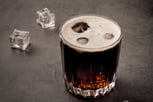How do you determine who and what is an alcoholic? This is a tough question. If you ask someone who is drinking excessively, they will tell you it’s NOT them. If you ask their friends and family, you may get a different answer. Everyone has a different definition of what alcoholism is and what an alcoholic looks like.
For the sake of simplicity, let’s talk about alcoholic drinking. This is a drinking pattern that may start out simply as occasional recreational drinking at first, but may spiral out of control. Here are a couple of examples:
Social Drinker
John is a 30-year old man who began to drink with some of his friends at about the age of 12. They drank only on weekends when they could steal alcohol or get someone to buy it for them. John’s teenage drinking started out in a curious way. He would keep drinking to the point where he did not later remember what he had said or done and his behavior was often out of control. He began to drink more often in high school and was in trouble quite a bit toward the end of his senior year. He went on to college, but drinking kept him from successfully applying his talents and intelligence to any of his classes. He quit college after two years and went to work in construction.
John is a hard worker who drinks daily after work “with the boys." They consider their drinking to be social, although John has a hard time quitting when everyone else goes home for dinner at 6:00 p.m. or so. He sometimes drinks until 1:00 a.m. or until the bar closes. This makes him sick the next day and he sometimes loses days of work due to being hungover (or having a certain type of “flu”). He is married, but his wife is weary of his drinking and they fight constantly about money and his time away from the family. John wants to spend all of his time off from work drinking and fishing or doing other things with“the boys," where his drinking is acceptable.
Binge Drinker
Sam is a 32-year-old man who began to drink at about the same age as John. He goes for several weeks, sometimes months, between drinking sprees. When he begins to drink, he can't stop and all bets are off. This pattern began after he successfully graduated from college and began to work as a sales manager. Because he frequently works from home or on the road, Sam has a great deal of freedom and extensive expense accounts. He has a girlfriend with whom he is living, but they are not married. Their relationship is on shaky ground, due to the strange behavior Sam displays when he goes on one of his drinking binges.
Sam has been arrested twice during drinking binges, both times for driving during a drinking blackout. He has met all the conditions of the courts where his sentencing occurred. He has attended classes for drunk driving and some A.A. meetings, at the insistence of the court. He is on probation and will lose his driver’s license the next time he is stopped for DUI.
Sam maintains a lovely home, a nice vehicle, and makes a substantial salary. He is the picture of the successful business man. His health is good and he shows little physical effect from his drinking sprees. His boss knows nothing about his arrests or his drinking escapades. He can drink socially when he is at a business function, but drinks alone when he begins a spree. Few know about Sam’s drinking problem.
Both of these men can be considered alcoholic drinkers. Because they cannot control the amount or the frequency of their drinking, nor have made any attempt to do so, most people might consider them normal drinkers who occasionally have “one too many.” They are not lying in the gutter on Skid Row, which is the picture most of us paint of what an alcoholic looks like.
Who Becomes an Alcoholic?
Alcoholics are people who cannot predict when they are going to drink next or how much. They cannot control the amount of alcohol they consume once they begin to drink. They may do well with only a drink or two, maybe three once in a while; but will often drink to blackout or until they lose consciousness more often than not.
Many alcoholics undergo personality changes when they drink. Many call them Dr. Jekyll and Mr. Hyde types. The nicest people you could meet when they are sober, alcoholics can become quite angry, emotionally unbalanced or maudlin when a certain amount of alcohol takes hold. Their behavior is sufficiently unpredictable to make them emotional and behavioral time bombs when alcohol is ingested.
Some people are genetically predisposed toward alcoholism. They have a family history of it. Others seem to have learned from their family that drinking is the coping mechanism that is easiest to choose to relieve stress, boredom and pain.
Some alcoholics have traits that are recognized as markers for trouble. These are patterns of thinking and behaving that are consistent in alcoholic drinkers. They use alcohol to “escape” life. Many have experienced traumatic events or life situations that they need to run away from and alcohol allows them to do so. This does not work for long, because the thing they use to help them becomes the bigger problem.
Early patterns of drinking also indicate alcoholic tendencies. Many alcoholics begin by binge drinking in their teens. Some have developed alcoholic drinking by the age of 14 or 15. Again, most of these young drinkers report that alcohol is their coping mechanism for a life they have no other way to deal with.
What Are the Symptoms of Alcoholism?
Alcoholism is a disease, according to the American Medical Association and the American Psychiatric Association. One of the most common symptoms of alcoholism is the compulsion to drink, despite serious consequences, socially, legally, financially, physically and emotionally. Another is the inability for the drinker to control when and how much they are going to drink.
They may exhibit the strength to do so in several instances; but will eventually go back to drinking uncontrollably. Wanting to stop is not enough. They have to make extraordinary life changes to maintain sobriety. This is one of the most curious aspects of alcoholism--as a disease, it is considered a mental illness (compulsion to drink), compounded by a physical allergy to the effects of alcohol (addiction); and it is a difficult condition to treat or quit.
Unpredictable behavior is another sign that drinking is becoming alcoholic. Blackouts are a frequent sign, as well. A blackout is an episode of temporary, alcohol-induced amnesia. The drinker may not remember events for several minutes, hours, or even days while in a drinking spree. Alcoholics have been known to do seemingly crazy and heart-breaking things under the influence of alcohol, often without remembering what they said or did when they come out of their stupor.
Alcohol can destroy the drinker’s ability to make sound and reasonable decisions or choices. Many alcoholics have stories about horrible experiences they have had when under the influence of too much alcohol.
Can Alcoholics Stop Drinking?
Alcoholics can stop drinking, though not usually on their own. Some will stop drinking through alcohol treatment programs and maintain abstinence for many years. Others will struggle with relapse and drinking for years and never be able to quit completely. Most professionals in alcohol treatment consider abstinence the only possible way to stop the severe consequences of alcoholism.
There is no evidence that an alcoholic can be cured of alcoholism and return to drinking in a non-alcoholic way. For as many years as there have been alcoholics, no research into the matter has delivered a complete cure for the disease. The best method is to stop problem drinking is to abstain completely from alcohol and replace drinking behaviors with healthier emotional responses to life. Coping skills and other behavioral changes are necessary. Most recovering alcoholics find some form of spiritual or religious practice that helps them to stay away from drinking. There are many programs available to assist alcoholics in refraining from a return to drink. The most successful are the 12-Step programs, such as Alcoholics Anonymous (AA).
If you or someone you know is seeking help with alcoholism, please visit our directory of alcohol treatment centers or call 866-606-0182 to start the path to recovery today.








